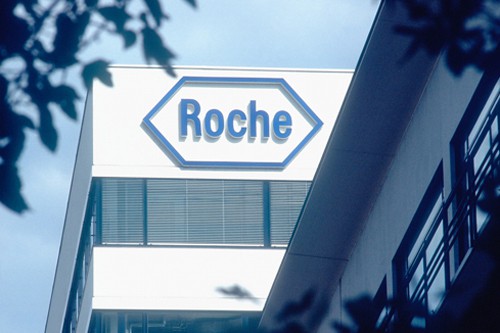
The FDA has granted priority review to a new drug combination from Roche that seeks to treat the deadliest form of skin cancer.
The US regulator has pledged to speed up its assessment of the Swiss firm’s experimental drug cobimetinib, in combination with its already marketed pill Zelboraf (vemurafenib), for the treatment of people with BRAF V600 mutation-positive advanced melanoma.
The FDA said it aims to make a decision on approval by August 11 this year, although it has been known to make decisions several months earlier than planned.
Cobimetinib is designed to selectively block the activity of MEK, one of a series of proteins inside cells that make up a signalling pathway that helps regulate cell division and survival.
Cobimetinib binds to MEK while Zelboraf binds to mutant BRAF, another protein on the pathway, to interrupt abnormal signalling that can cause tumours to grow.
Zelboraf has been on the market since 2011 and was the first BRAF inhibitor to be approved for melanoma patients. The drug is expected to bring in around $700m to $1bn in peak annual sales.
Sandra Horning, chief medical officer and head of global product development at Roche, said: “We are pleased the FDA has accepted our application for cobimetinib in combination with Zelboraf and granted it priority review status.
“We look forward to working with the FDA to bring this new treatment option to people with BRAF mutation-positive advanced melanoma as soon as possible.”
A priority review designation is granted to medicines that the FDA determines have the potential to provide significant improvements in the treatment, prevention or diagnosis of a disease.
Roche’s application is based on results of the coBRIM phase III study, which showed the combination therapy produced a median progression-free survival (PFS) of 9.9 months for cobimetinib plus Zelboraf, compared to 6.2 months with Zelboraf alone.
Growing competition
Cobimetinib will not however be the first MEK inhibitor to market for this type of cancer, should it receive approval.
Last year GSK’s (and soon to be Novartis’) Mekinist (trametinib) was approved in Europe for patients with unresectable or metastatic melanoma with a BRAF V600 mutation who have failed on Zelboraf.
GlaxoSmithKline also has a BRAF inhibitor in the shape of Tafinlar (dabrafenib) and has beaten Roche to market with a combination therapy of Tafinlar and Mekinist, which was approved by the FDA in January 2014.
If GSK’s products prove more effective together than Roche’s treatment, it could earn the company a sizable chunk of a billion-dollar market. Analysts have predicted peak annual sales for Mekinist and Tafinlar to reach $2.4bn by 2020.
But should Roche gain approval for a cobimetinib-Zelboraf combination therapy, this could help shore up its sales, especially as Zelboraf has been on the market as a singular treatment for longer than GSK’s treatment.
All of these medicines will, however, need to compete with Bristol-Myers Squibb’s cancer vaccine Yervoy (ipilimumab), which was the first of the new generation of melanoma drugs to be approved by the FDA in early 2011.
This treatment is expected to reach blockbuster sales and can potentially treat all forms of melanoma as it ‘teaches’ the body’s immune system to combat cancer. BMS has also recently gained FDA approval for a second melanoma immunotherapy Opdivo (nivolumab), which is licensed to treat patients who have failed on Yervoy (nivolumab) and other medicines.




